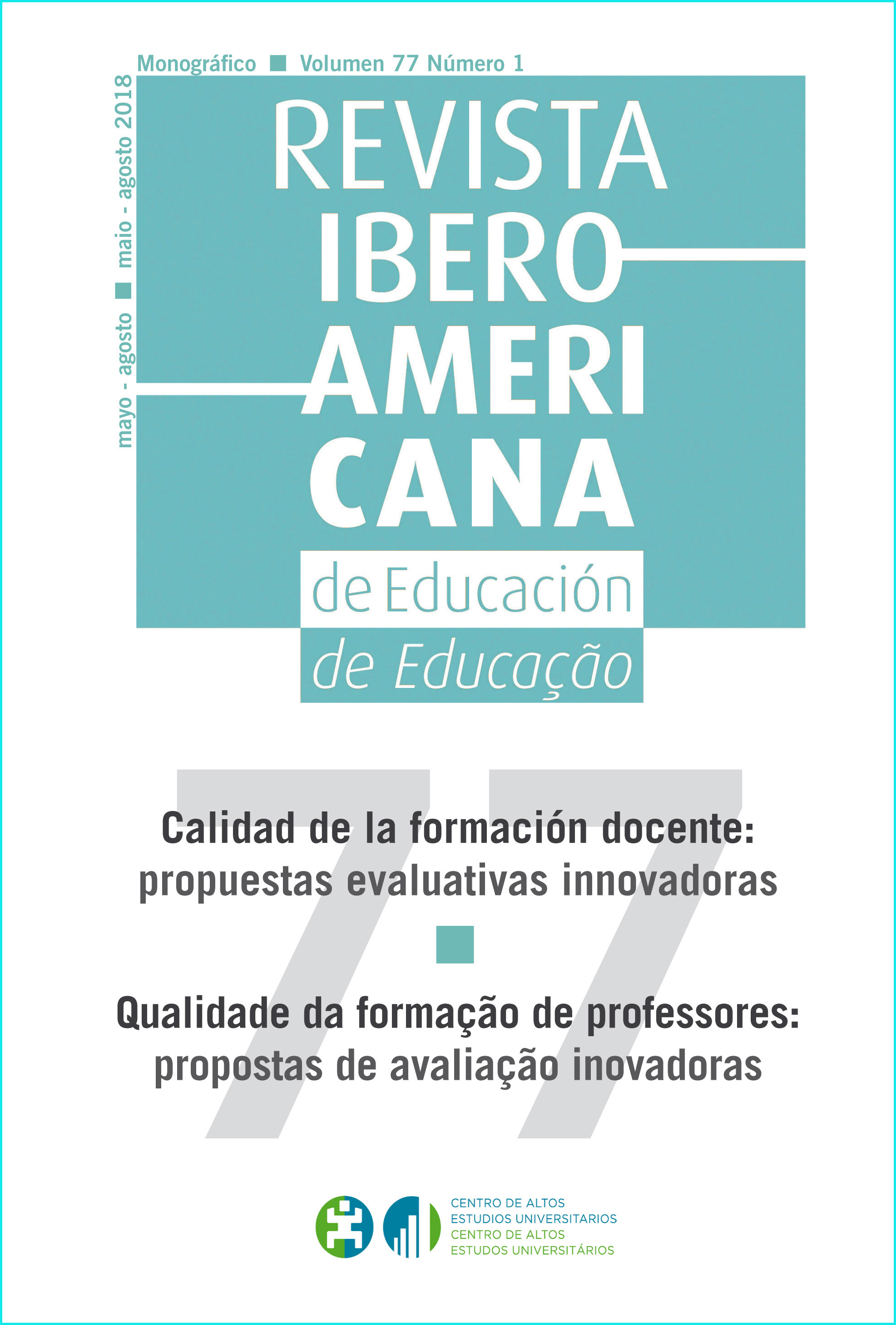Initiation research tool: meaningful evaluation in distance learning
DOI:
https://doi.org/10.35362/rie7713117Keywords:
evaluation, distance learning, interaction toolAbstract
When we start talking about education in this twenty-first century, there already seems to be a mass discourse about the relation between technology and knowledge. This is because it is already known that society has changed and that changes have disguised and concealed the numerous social systems, including education. Thus, to speak of educational spaces is to report on its various clothing for the present moment. In this sense, the Internet, as one of the main places of information gathering at the present time, gains the visibility of meeting point for exchange of experiences. And in this scenario of online propagation, it is possible to find new methodological possibilities to improve access, presenting research opportunities and overcoming academic challenges. In highlighting the universe of Higher Education, this article aims to identify how the evaluation of learning in the distance modality, in an attempt to give guidelines so that it is no longer a means of certifying technical practices. From the problematic about what would be the perspectives of 713 undergraduates, of Pedagogy, about their academic actions, which until then were socially intrinsic in the face-to-face possibility, and through one of the main evaluation activities, the work of conclusion of course, the research presents the trajectory of an investigation that resulted in the design of an online tool adapted to the needs of this public.
Downloads
References
Bautista, G., Borges, F., Forés, A. (2006). Didáctica universitária em entornos virtuales de enseñanza-aprendizaje. Madrid: Narcea.
Brasil. (2017). Decreto 9.057 e portaria nº 11/2017. Normas para o credenciamento de instituições e a oferta de cursos superiores a distância, Brasília, MEC.
Cabral, A. P., Tavares, J. (2005). Reading/comprehension writing and academic sucess a diagnosis study in four portuguese universities. Psicologia Escolar e Educacional, v. 9, n. 2, p. 203-213
Castells, M. (2008). La sociedade RED: uma visión global. Madrid: Alianza Editorial.
Darojat, O., Nilson, M., & Kaufman, D. (2015). Quality assurance in Asian open and distance learning: Policies and implementation. Journal of Learning for Development, 2(2). Acessado em Agosto de 2017. Disponível em http://www.jl4d.org/index.php/ejl4d/article/view/105/96.
Fujisawa, D. (2000). Utilização de jogos e brincadeiras como recurso no atendimento fisioterapêutico de criança: implicações na formação do fisioterapeuta. 2000. Dissertação (Mestrado em Educação) - Faculdade de Filosofia e Ciências, Universidade Estadual Paulista, Marília.
Guarezi, R. & Matos, M. (2009). Educação a distância sem segredos. Curitiba. Editora IBPEX.
Junges, K. S. (2013). Desenvolvimento profissional de professores universitários: caminhos de 2013 uma formação pedagógica inovadora. Tese (doutorado) – Pontifícia Universidade Católica do Paraná, Curitiba.
Junges, K. S. & Freitas, M. (2017). A metodologia de portfólios na formação docente inicial: mapeando aprendizagens e tecendo considerações. In: Junges, K.; Silva, E. & Schena, Valéria Aparecida. (Orgs.) Formação docente: tendências, saberes e práticas. Curitiba: CRV.
Kostiainen, E., Ukskoski, T., Ruohotie-Lyhty, M., Kauppinen,M., Kainulainen, J. & Mäkinen, T. (2018). Meaningful learning in teacher education. Teaching and Teacher Education. Volume 71,April 2018, Pages 66-77.
Li, K, Yuen, K & Wong, B. (2018). Innovations in Open and Flexible Education. Springer, Singapore
Luckesi, C. (2001). Avaliação da aprendizagem escolar: estudos e proposições - 11.ed. – São Paulo, Cortez.
Rocha, E. (2014). Avaliação na EAD: estamos preparados para avaliar? ANAIS do Congresso 20º CIAED. Curitiba: Associação Brasileira de Educação a Distância.
Salume, P. K., Queiroz, S. F., Santiago, R. R.(2012). Análise da efetividade do fórum de discussão nos processos de ensino e aprendizagem em EAD. Acessado em: 01/05/2017. Disponível em: http://www.abed.org.br/congresso2012/anais/156c.pdf.
Tourinho, C. ( 2011). Refletindo sobre a dificuldade de leitura em alunos do ensino superior: “deficiência” ou simples falta de hábito? Revista Lugares de Educação, Bananeiras/PB, v. 1, n. 2, p. 325-346, jul.-dez.
Wunsch, L. (2013). Formação inicial de professores do ensino básico e secundário: integração das tecnologias da informação e comunicação nos mestrados em ensino. Tese de Doutorado. Universidade de Lisboa. Portugal.
Wunsch, L. P., Machado, D. P. (2017). Prática na formação de professores: revendo caminhos inovadores já percorridos. In: Junges, Kelen dos Santos; Silva, Eliane Paganini da; Schena, Valéria Aparecida. (Orgs.) Formação Docente: Tendências, Saberes e Práticas. Curitiba: CRV, 2017. P. 57-67.
How to Cite
Downloads
Published
Issue
Section
License
Any authors who publish with this journal accept the following terms:
















